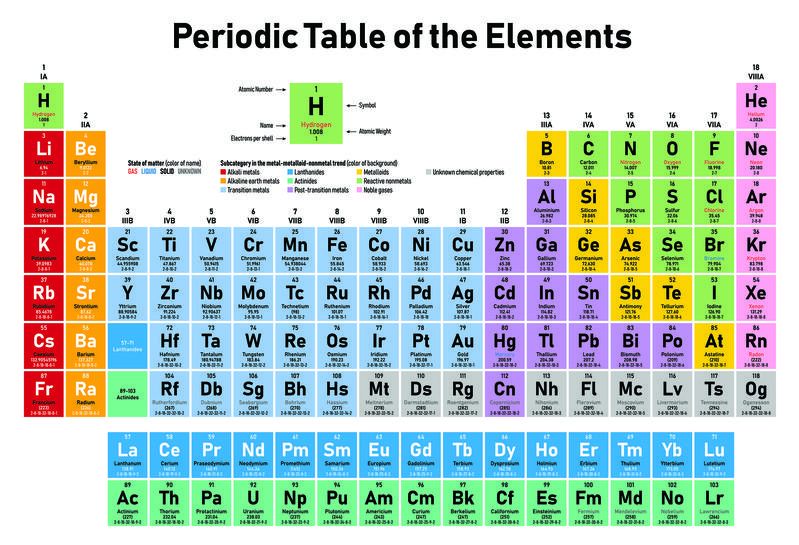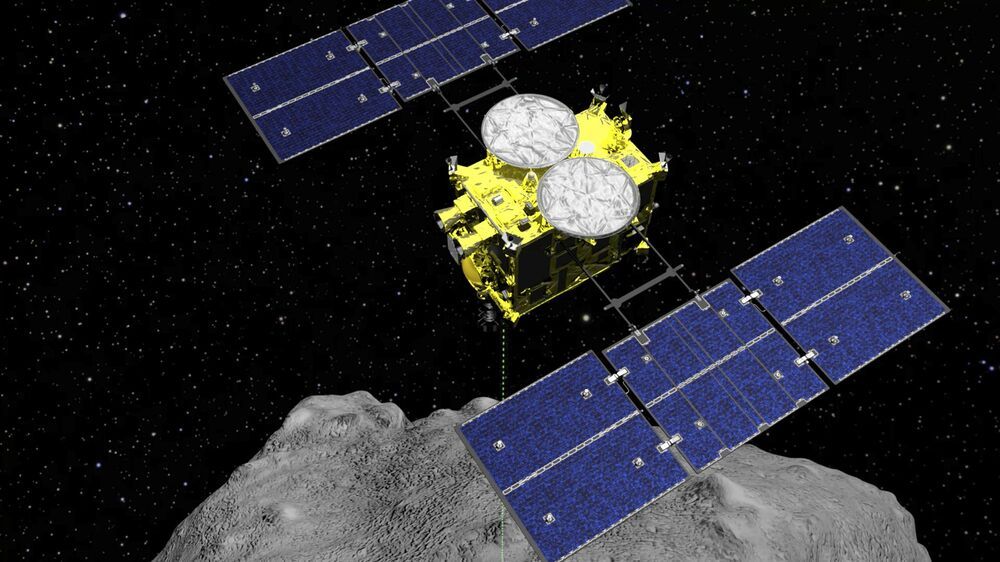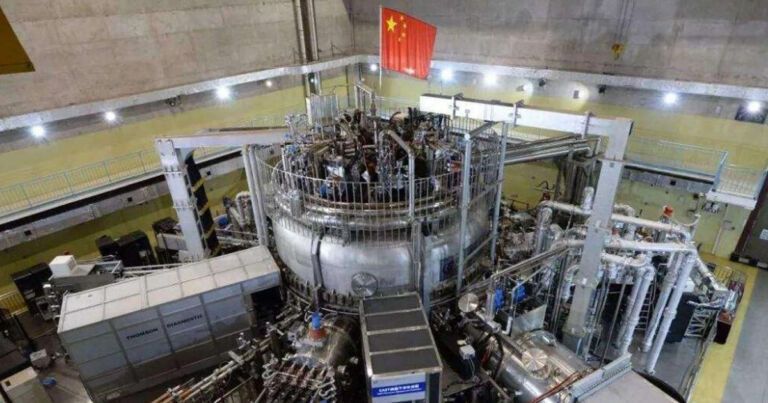He hopes it will be a stepping stone to the Moon and Mars.


He hopes it will be a stepping stone to the Moon and Mars.

Maybe you’ve felt a certain chemistry with 2019 but don’t know why? Maybe it’s because this year marks the 150th anniversary of the Periodic Table of the Elements. It’s considered the founding document of modern chemistry, one you may have studied in school.
UW-Madison professor of chemistry Bassam Shakhashiri knows both the history of the table, and its modern relevance. He says the table came about through a collaboration of a few scientists but that Dmitri Mendeleev properly gets much of the credit.
“Dimitri Mendeleev, the Russian chemist, he proposed — sometimes people say he discovered — the pattern of similar behavior [of certain elements] and arranged them,” Shakhashiri explains.



TOKYO (AP) — Japanese space agency officials said Friday the Hayabusa2 spacecraft is on its intended trajectory as it approaches Earth to deliver a capsule containing samples from a distant asteroid that could provide clues to the origin of the solar system and life on Earth.
The spacecraft left the asteroid Ryugu, about 300 million kilometers (180 million miles) away, a year ago. The capsule is to be released 220,000 kilometers (136,700 miles) away in space and land in a remote, sparsely populated area of Woomera, Australia, on Sunday.
Hayabusa2 is flying smoothly according to plan, Yuichi Tsuda, project manager at the Japan Aerospace Exploration Agency, said at a briefing ahead of the critical separation of the capsule from the spacecraft on Saturday.


The proposal would end a federal ban on marijuana and create a pathway to expunge related criminal records.
As the cannabis industry continues to take root state by state, the House of Representatives voted in favor of removing marijuana from the federal Controlled Substances Act.
The House voted Friday on the Marijuana Opportunity Reinvestment and Expungement Act, or MORE Act, which decriminalizes cannabis and clears the way to erase nonviolent federal marijuana convictions. The Senate is unlikely to approve the bill.
The MORE Act also creates pathways for ownership opportunities in the emerging industry, allows veterans to obtain medical cannabis recommendations from Veteran Affairs doctors, and establishes funding sources to reinvest in communities disproportionately affected by the war on drugs.
Dr leonard hayflick — father of cell senescence!
Dr. Leonard Hayflick, is Professor of Anatomy, University of California, San Francisco School of Medicine, where he has been part of the faculty since 1988.
Dr. Hayflick received his Ph.D. at the University of Pennsylvania, did a post-doctoral fellowship at the University of Texas under the tutelage of the renowned cell culturist Prof. Charles Pomerat, and then returned to Philadelphia, where he spent ten years as an Associate Member of the Wistar Institute, and two years as an Assistant Professor of Research Medicine at the University of Pennsylvania.
Dr. Hayflick is extremely well known for his research in a range of domains including cell biology, virus vaccine development, and mycoplasmology.
In 1962 he discovered that, contrary to what was believed since the turn of the century, cultured normal human and animal cells have a limited capacity to replicate. This phenomenon became known as “The Hayflick Limit” which became a discovery that overturned a dogma that existed since early in the twentieth century and focused attention on the cell as the fundamental location of age changes.
This Week in Engineering is multi-segment show that explores the latest innovations and tech trends across many engineering disciplines from academic institutions, government agencies and industry.
EPISODE SEGMENTS:
0:14 GM Unveils Massive Investment in EV’s.
2:30 UK’s Kar-go Autonomous Delivery Vehicle.
* * *
ENGINEERING.COM TV:
This episode is brought to you by engineering.com, a globally trusted source for engineering content. Watch in-depth engineering videos made for the engineering professional and found exclusively on engineering.com/TV:
For the Manufacturing Engineer: https://bit.ly/3nTLysU
For the Design Engineer: https://bit.ly/398SNJf.
* * *
SUBSCRIBE TO OUR NEWSLETTERS:
Join the engineering.com community and subscribe to a selection of newsletters in the field of engineering of you’re interested in. Get the latest news, developments, research reports, white papers, videos and industry webinars:
https://bit.ly/2Hvcyz8
* * *
Read more about the topics discussed in this video on engineering.com:
Kar-go Autonomous Vehicle Begins Contactless Delivery to Care Homes:
